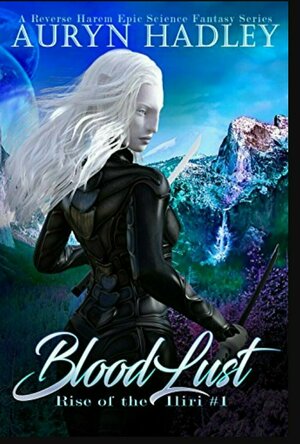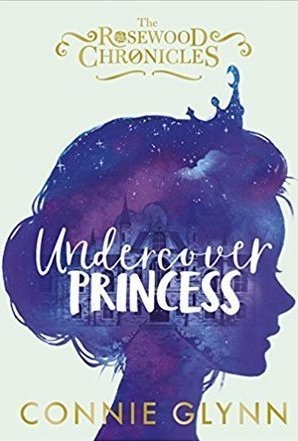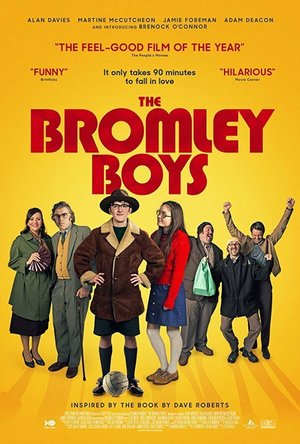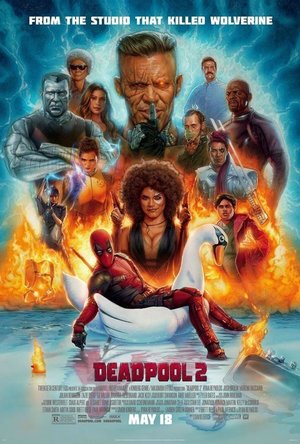Ivana A. | Diary of Difference (1171 KP) rated The Undercover Princess in Books
Feb 3, 2020
<b>Rosewood Chronicles</b>
#1 <a href="https://www.goodreads.com/review/show/2598018490">Undercover Princess</a> - ★★★★★
#2 <a href="https://www.goodreads.com/review/show/2761943995">Princess in Practice</a> - ★★★★
<img src="https://diaryofdifference.com/wp-content/uploads/2019/04/New-blog-banner-12.png"/>;
<i>I am lucky to have the best sister ever, who keeps giving me books I love! She gave me Undercover Princess for my birthday back in November last year, and I finally managed to get to it. Thank you, sis!</i>
Even though Undercover Princess has great resemblance to The Princess Diaries and The Princess Protection Program, this book is unique in its own way, and the story is very different and positively surprising. I was in love with the characters and loved this book a lot. I will definitely be reading the second book of the series!
The story focuses on two main characters:
<b><i>* Lottie Pumpkin - the ordinary girl
* Ellie Wolf - the princess</i></b>
And I wish it was all so easy. But you see, Lottie is an ordinary girl, she grew up in England and her mother passed away when she was little. Before she passes away, she gives Lottie a tiara for her birthday and makes her promise that she will always be brave. Lottie’s only goal in life is to attend Rosewood Hall, no matter what. And she makes it, with a scholarship.
On the other side, we have Ellie, the princess of Maradova. All she ever wants to be is ordinary, but she is surrounded by servants and shiny items. She wants to go to Rosewood Hall, only to avoid all her royal duties. And the only way of her parents letting this happen is if she attends the college undercover.
Then we have these two girls being roommates. A rumour spreads around the school and everyone thinks that Lottie is the princess. And in this whole mystery, the real princess is in danger, but no one must know that the real princess is Ellie. <b>And this is only the beginning.</b>
The story is full of adventures and hilarious scenes, where we see Lottie and Ellie building their friendship, and trying to figure out the mystery behind all the threats they are receiving, all while they attend classes and go to parties like ordinary college girls.
While they play this game of swapping identities, they realise that this is more than a game, it is a lifestyle. And if Lottie is the undercover princess, she has to do everything to protect the real princess and her identity. Is this what she really wants? Is their friendship worth it?
There was a LGBT reference with a couple in this book, and maybe it was me, but I could also see a few sparks between Lottie and Ellie. I honestly expected something to happen between Lottie and Ellie's bodyguard. There were sparks though, so perhaps in the next book?
I loved how the partially-romantic scenes were building up to the real moment and made me want to read more. The writing skills this author has is truly amazing, and I praise her for it. It was a pleasure to read each chapter.
<a href="https://diaryofdifference.com/">Blog</a>; | <a href="https://www.facebook.com/diaryofdifference/">Facebook</a>; | <a href="https://twitter.com/DiaryDifference">Twitter</a>; | <a href="https://www.instagram.com/diaryofdifference/">Instagram</a>; | <a href="https://www.pinterest.co.uk/diaryofdifference/pins/">Pinterest</a>;
Darren (1599 KP) rated The Bromley Boys (2018) in Movies
Aug 6, 2019
This season is going to be David’s biggest as he learns about the corruption from the chairman Charlie McQueen (Foreman) and the potential sale of the club’s best player. David also meets Ruby (Baker) the daughter of the chairman that is the only girl that talks to him as he experiences love for the first time.
Thoughts on The Bromley Boys
Characters – David Roberts is a teenage boy that got dreams of being a footballer after seeing England win the World Cup in 1966, he is forced to support his local team, a small team with a tiny fanbase, he becomes a loyal fan and during the 1969 season he must figure out prove the chairman is out to ruin the club as they constantly struggle on the pitch. Ruby McQueen is the daughter of the chairman that starts dating David, she wants a normal relationship but often has to play second fiddle to his love of football. Charlie McQueen is the greedy chairman of Bromley, the fans and manager believe he is trying to put them out of business, which reflects on how David tries to expose his truth. Gertrude and Donald are David’s parents that are trying to give him the best future even if they don’t like him enjoy football.
Performances – Brenock O’Connor is delightful in the leading role showing us just how obsessed teenager can become when it comes to sports. Savannah Baker is great as the love interest who is looking for a future. Jamie Foreman looks all the part of a corrupt chairman through the film, with Alan Davies and Martine McCutcheon showing they have the star power from the English side.
Story – The story here follows a teenage football fan of his local team that starts to see things putting his beloved club in trouble after overhearing a conversation, he tries to fix things during the season just to make sure his team will be their next season. As a football fan this is one of the easiest films to relate to, seeing the ups, well downs more than often in this film, we can see how footballs can see their lives taken over by the season, it is even worse in modern day too, we do also have the important message about trying to support your local team instead of one of the more established teams that friends support. This is based on a trouble story which apart from the romantic angle does feel like it could have been real, but also the tales told from the tiny crowds to get buzz around their club. This is a story that is going to be one that the English market will enjoy the most.
Comedy – You will get plenty of laughs in this film, a lot comes from the love of football and seeing just how much it can change a life.
Settings – The film is set in and around the small town of Bromley, we spend plenty of time at the club, which helps us understand what this meant to David.
Scene of the Movie – The last game of the season.
That Moment That Annoyed Me – The teachers seem very harsh.
Final Thoughts – This is an enjoyable British comedy, one that the English will enjoy most and one we can understand the passion behind supporting the team.
Overall: Truly fun and feel good film.

Learn English, Speak English - Language guide
Education and Travel
App
Would you like to speak English? What if it would be easy and fun, taking only a couple of minutes...

Brian Cox's Wonders of the Universe
Reference and Education
App
Take a mind-blowing 3D tour of the Universe with Professor Brian Cox as your guide. The official...

18 Dating app: Chat & Meet
Dating, Entertainment and Social Networking
App
Find new friends, your other half or a new love with 18 Dating app. Everyone has a beautiful love...

Color Keyboard Changer Pro
Utilities and Lifestyle
App
*** Choose your favorite keyboard theme now! *** ** Use this amazing opportunity to have your own...

Photo Lab PROHD picture editor
Photo & Video and Entertainment
App
Photo Lab PRO – a full-featured Photo Fun Generator for your iPhone and iPad! Photo Lab PRO...

Hungama Music - Songs & Radio
Music and Entertainment
App
Hungama Music App provides free & unlimited access to listen to music online or download songs &...

Bloodlust (The Rise Of Iliri #1)
Book
"Bloodlust, and the Rise of the Iliri series as a whole, will blow you mind, break your heart, and...
Young adult Vampire Vampyre Ilirri Young adult Teen
Bob Mann (459 KP) rated Deadpool 2 (2018) in Movies
Sep 29, 2021
It’s a “family film” (LoL). Ryan Reynolds is back again as the eponymous superhero (aka Wade Wilson) and we start the film with him in a state of romantic bliss with Vanessa (Morena Baccarin). But things quickly go south, and what follows is a convoluted plot involving a local gangster, an Arnie-type character from the future (Josh Brolin) and an potentially dark X-powered child Firefist (Julian Dennison, “Hunt for the Wilderpeople”). Deadpool has to use all his powers to restore order to the planet. Given that his “power” is the ability to rejuvenate himself after surviving the most catastrophic injuries, you can predict that things will get messy!
Yes guys, it’s violent… very, very violent! But it’s done in such a “Tom and Jerry” style that it always comes out as a “Bluuugggghhhhaaaaa!” (* that’s supposed to be the noise of a huge guffaw) rather than an “Ugggh” (retch).
A particular high point for me was the assembly of the ‘X-Men-Lite’ team called “X-force”. The ‘interviews’ for this are hilarious, but the first sortie of the team to intercept a convoy moving prisoners** is even better. It’s just snort-your-Ben-and-Jerry’s-out-of-the-nose funny. This scene also includes precisely 1.8 seconds of a splendid cameo in the part of “Vanisher”!
There are many scenes, supported by numerous snide one-liners, that reference movie classics. A subliminal cameo(s) shot in the X-Men house is just brilliant. Equally brilliant but much more disturbing is a variant on that most famous scene from “Basic Instinct”…. this falls into the “can’t unsee” category of movie clips!
But the film rather over-eggs the comic asides, with a scattergun approach to the comedy that works 70% of the time but not for the other 30%. The best ones are Deadpool’s snide aside to camera. Where the script over-reaches is where the joke gets spread across the cast: one ensemble scene in particular in the flat of blind Al (Leslie Uggams) is: a) delivered so fast as to be practically unintelligible and b) falls as flat as a pancake as a result.
Josh Brolin must have signed a three-film baddie deal, since here he pops up again just weeks after his brilliant Thanos-turn in “Avengers: Infinity War“. And as for that performance, here he is superbly nuanced, with scenes that are truly touching (and with less CGI) .
Across the superhero ensemble, Zazie Beetz stands out as “Domino”. She really should be called “Lucky” though (and yes Andrea ‘Van Helsing’ Ware… I know you have the trademark on that character name! 🙂 ). Domino is my favourite character in the film… just so cool and stylish.
And credit where credit’s due, Ryan Reynolds (“Life“, “The Hitman’s Bodyguard“) is again outstanding as Deadpool. Given he is such a dish (not speaking personally here you understand) he is very brave to portray his character in such an self-deprecating and downbeat way. The final scene in the film (following some brilliant “tidying up the timeline” scenes) is so gloriously self-mocking that I LoLed myself all the way home. Outstanding.
As Marvel films go, it’s another corking comedy. But so close to the knuckle in places, I suspect this is not a character that will feature in the Infinity War sequel!


